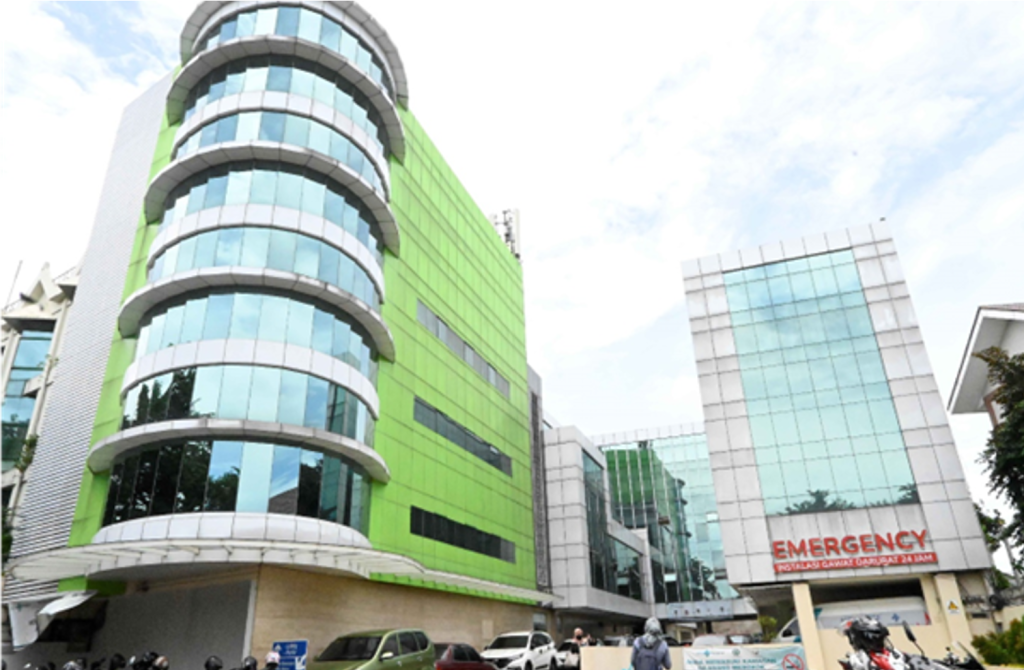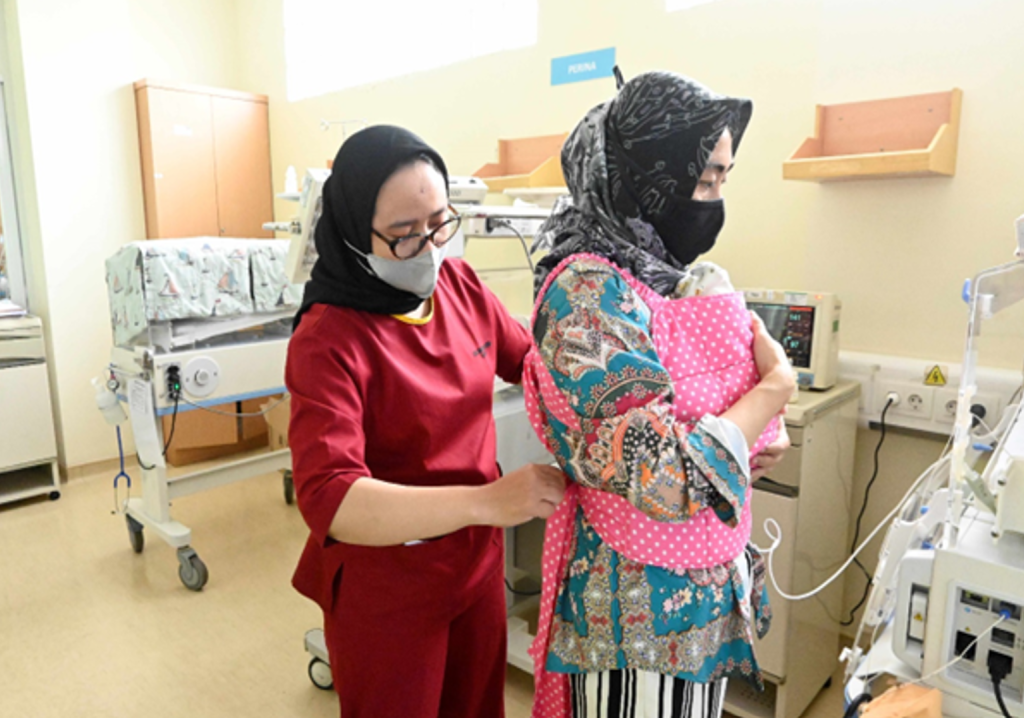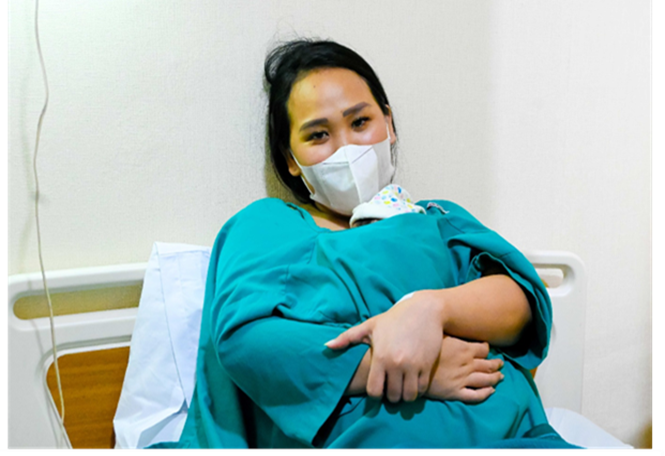Embracing Babies: Kangaroo Mother Care in Indonesia
Published on April 15, 2024
By Ester Lucia Hutabarat, Senior Communications Specialist, MOMENTUM Private Healthcare Delivery Indonesia
Kangaroo Mother Care (KMC) is a simple and cost-effective method of caring for premature and low birth weight babies. During KMC, the baby is kept close to the mother’s warm skin, helping to regulate the baby’s body temperature and prevent hypothermia. The World Health Organization recommends that immediate KMC, which involves skin-to-skin contact with the mother and exclusive breastfeeding, is started as soon as a preterm or low birthweight baby is born.

Alia Hospital, in Indonesia’s capital city of Jakarta, supports KMC as it helps to increase weight gain, encourage maternal newborn bonding, and build mothers’ confidence to take care of their babies. Merita Basril, a newborn intensive care unit (NICU) nurse from Alia Hospital shares, “After we introduced KMC to them and made it a regular practice, these mothers and babies [that used KMC in the hospital] are then discharged and don’t have problems at home. Their babies’ weight gain is faster, and we have not seen an increase in readmissions or mortality. We recognize that KMC has many benefits for all babies.”
While Alia Hospital is now utilizing KMC as a routine practice, this was not always the case. As one of 101 MOMENTUM Private Healthcare Delivery-supported facilities in 2023, Alia Hospital receives ongoing technical assistance to improve quality of care. This B-class hospital1 caters to roughly 200 deliveries per month. Some 7.5% of newborn admissions are hypothermia cases, which are especially common in low birth weight and premature babies. All hypothermia cases are admitted to the NICU directly after birth. However, the hospital does not have a transport incubator for transferring low birth weight babies from the Operating Room (OR) to the NICU. Nurse Merita explained, “There’s an incubator in the OR and plenty in the NICU, but we don’t have the means to keep the baby’s temperature stable when they are transferred from one place to the other.”
In seeking to address the challenges around transport, a mentor from Cipto Mangunkusumo General Public Hospital recommended Alia Hospital use the KMC method to transfer low weight babies from the OR to the NICU. This has been found to offer several benefits compared to transporting them in incubators.

With MOMENTUM’s support, the hospital developed Standard Operating Procedures for using KMC to transport babies, procured supplies such as wraps and blankets, and trained all midwives and nurses in the OR, labor room, NICU, and nursery on the approach.
Sara Dara, who delivered her low birth weight baby at 35 weeks, was one of the first patients at Alia Hospital to be introduced to KMC. “The midwife and nurses talked to me and my husband about the problem and educated us on the KMC method. They said my husband would need to carry our baby after birth like a kangaroo from the operating room to NICU,” said Sara Dara. “We hesitated at first since this is our first time [in this situation]. My first and second children were both born at normal gestational age, so we didn’t have this problem then. The midwife kept motivating and educating us as to [how to] keep our baby safe.” With assistance from the midwife and nurses, Sara’s husband used KMC to transport their baby from the OR to the NICU. The baby’s temperature remained stable once admitted to NICU.

Within a three-month implementation period, Alia Hospital had delivered 34 low birth weight babies. The hospital was able to reduce hypothermia cases among babies admitted to the NICU from 100% to 7%. The hospital’s management and quality improvement team continue to support providers in using the method and educating patients. Dr. Tri Setiawardana, the hospital’s Head Section for Medical Services, shared, “As for the patients and their families, our healthcare workers will keep motivating and educating them on KMC prior to delivery, [and]even give them demonstrations to provoke their enthusiasm in helping to save the babies.”
Footnote
- In Indonesia, a B-class hospital is a facility with the capacity to provide extensive specialist medical services and limited subspecialist services. There should be facilities and medical service capabilities for at least 4 basic specialists, 4 supporting medical specialists, 8 other specialists, and 2 basic subspecialists. B-class hospitals are established in each provincial capital (provincial hospital) to accommodate referral services from district hospitals (Government Regulation No. 47/2021).

